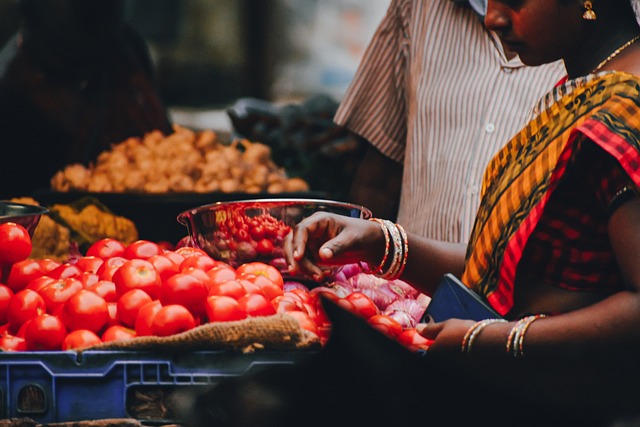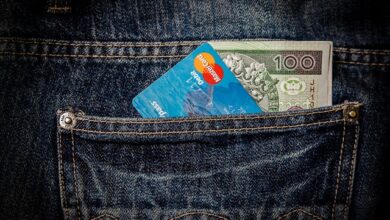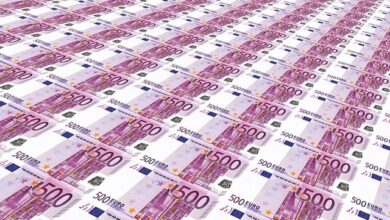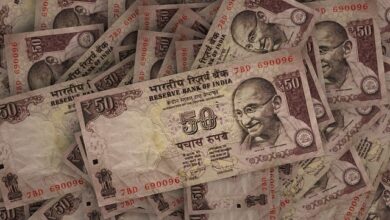Grocery Prices and Best Supermarkets for Budget Shopping in France

France is known for its high-quality food products, from fresh baguettes to artisanal cheeses. However, grocery shopping can sometimes be expensive, especially in urban areas like Paris. For those looking to save money while still enjoying delicious French produce, it’s important to know where to shop and how to navigate the pricing landscape. In this article, we’ll explore the average grocery prices in France, tips for budget shopping, and the best supermarkets for affordable groceries.
1. Average Grocery Prices in France
Grocery prices in France vary depending on the region, store type, and product quality. Below are some approximate prices for common items (as of 2023):
A. Staples
- Baguette: €1–€1.50
- Milk (1 liter): €0.80–€1.20
- Eggs (12-pack): €2.50–€4.00
- White bread (loaf): €1.50–€2.50
- Rice (1 kg): €1.50–€3.00
B. Fresh Produce
- Apples (1 kg): €2.00–€3.50
- Tomatoes (1 kg): €2.50–€4.00
- Bananas (1 kg): €2.00–€3.00
- Potatoes (1 kg): €1.50–€2.50
C. Meat and Dairy
- Chicken breast (1 kg): €7.00–€12.00
- Ground beef (1 kg): €8.00–€14.00
- Cheese (Camembert, 250g): €2.50–€5.00
- Butter (250g): €1.50–€3.00
D. Beverages
- Bottle of water (1.5 liters): €0.30–€1.00
- Coca-Cola (1.5 liters): €1.50–€2.50
- Wine (bottle, mid-range): €5.00–€15.00
E. Snacks
- Pack of cookies: €1.50–€3.00
- Chocolate bar (100g): €1.00–€2.50
Prices tend to be higher in major cities like Paris, Lyon, and Nice compared to rural areas. Additionally, organic (bio ) products and specialty items such as imported goods or luxury brands are significantly more expensive.
2. Tips for Budget Grocery Shopping in France
To make your grocery shopping more affordable, consider these practical tips:
A. Buy Local and Seasonal Produce
- Seasonal fruits and vegetables are often cheaper and fresher. Visit local markets for great deals.
- Farmers’ markets (marchés ) typically offer lower prices than supermarkets for fresh produce.
B. Take Advantage of Discounts
- Look for discounted items marked with “PROMO” or “SOLDES” labels, especially near the end of the day when perishable goods are reduced.
- Many stores have loyalty programs offering discounts or cashback.
C. Shop at Discount Stores
- Opt for budget-friendly chains like Lidl, Aldi, and Leader Price for everyday essentials.
- These stores often carry private-label products that are significantly cheaper than branded alternatives.
D. Avoid Pre-Packaged Items
- Buying loose fruits, vegetables, and bulk items is usually more cost-effective than pre-packaged versions.
- Bring reusable bags to avoid paying for plastic bags at checkout.
E. Cook at Home
- Eating out in France can be expensive, so preparing meals at home using affordable ingredients is a smart way to save money.
- Classic French dishes like ratatouille or quiche use inexpensive, seasonal ingredients.
F. Compare Prices
- Use apps like Yuka or PrixFixe to compare prices across different stores and find the best deals.
3. Best Supermarkets for Budget Shopping
France has a wide variety of supermarkets catering to different budgets. Here are the top options for budget-conscious shoppers:
A. Lidl
- Why Choose It?
- Known for rock-bottom prices on groceries, household items, and even clothing.
- Offers high-quality private-label products.
- Best For:
- Everyday staples like pasta, rice, canned goods, and frozen foods.
- Affordable wine and baked goods.
B. Aldi
- Why Choose It?
- Similar to Lidl, Aldi focuses on low-cost, no-frills shopping.
- Limited selection but excellent value for money.
- Best For:
- Bulk purchases and pantry essentials.
- Weekly specials on meat, fish, and seasonal produce.
C. Leader Price
- Why Choose It?
- A French discount chain offering competitive prices on a wide range of products.
- Regular promotions and clearance sales.
- Best For:
- Budget-friendly snacks, beverages, and dairy products.
- Frozen and ready-to-eat meals.
D. Carrefour Contact/Carrefour City
- Why Choose It?
- Smaller-format Carrefour stores located in urban areas.
- Offers a mix of affordable prices and convenience.
- Best For:
- Quick grocery runs and last-minute essentials.
- Weekly promotions on fresh produce and bakery items.
E. Intermarché
- Why Choose It?
- Mid-range supermarket with frequent discounts and loyalty rewards.
- Often found in smaller towns and rural areas.
- Best For:
- Fresh meat, fish, and regional specialties.
- Family-sized packs at reasonable prices.
F. Franprix/Monoprix
- Why Choose It?
- Urban convenience stores with slightly higher prices but good promotions.
- Ideal for quick shopping trips in city centers.
- Best For:
- Ready-to-eat meals and snacks.
- Household items and toiletries.
4. Alternative Shopping Options
If you’re looking beyond traditional supermarkets, here are some alternative ways to save on groceries:
A. Local Markets
- Farmers’ markets (marchés ) are abundant in France and offer fresh, locally sourced produce at competitive prices.
- Visit towards the end of the market day for bargains as vendors reduce prices to clear stock.
B. Hypermarkets
- Large hypermarkets like Carrefour , Leclerc , and Auchan provide significant savings on bulk purchases.
- Perfect for stocking up on non-perishable items, cleaning supplies, and pet food.
C. Online Grocery Delivery
- Platforms like Amazon Fresh , Carrefour Drive , and Leclerc Drive allow you to shop online and pick up your order or have it delivered.
- Check for promotional codes and free delivery thresholds.
D. Solidarity Grocery Stores
- Some cities have solidarity grocery stores (épiceries solidaires ) that offer heavily discounted groceries to low-income families. These require proof of eligibility.
5. Regional Variations in Grocery Prices
Grocery prices can vary significantly across France:
- Paris and Major Cities: Higher prices due to demand and real estate costs.
- Rural Areas: Lower prices, especially for locally produced goods.
- Southern France: Slightly higher prices for imported goods but affordable local produce.



